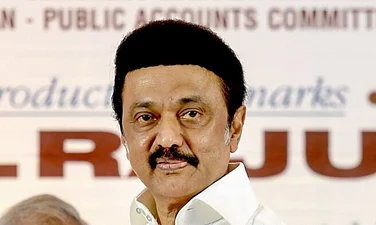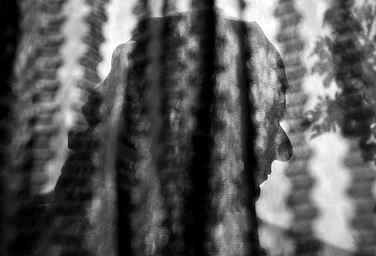MUMBAI wore saffron after the civic elections as members of the Shiv Sena celebrated the party's hold over the country's financial capital and most of Maharashtra. And in Delhi, the seat of power, the mood was ecstatic as its electoral ally, the BJP, overran the Congress in the municipal polls.
In Maharashtra, the Congress had controlled eight of the nine corporations which went to the polls last week. All of these were lost, except Pune and Pimpri-Chinchwad. The party also posted losses in Solapur, a corporation it had controlled without interruption for the last 30 years.
In a sense, the polls were more a test of whether the Congress had learnt from its bitter lessons that had brought a change at the very top. The results showed that the party had not. It hadn't been able to win back alienated sections and petty squabbles and poor management were still the order of the day.
It was a lesson not lost on Congress President Sitaram Kesri. In a sudden announcement on February 27, he dissolved the Congress committees of Delhi and Mumbai. The announcement also swept away committees in Haryana, Tripura, Goa and Jammu & Kashmir. It was seen as significant that most of these committees had been appointed by Narasimha Rao.
There were clear signs of trouble for the Congress even as the party lunged into its lacklustre campaign. In Mumbai, the Congress initiative was led by Murli Deora, who had been Mumbai Regional Congress Committee chief for 16 years. Soon after the results came in, Deora put in his resignation owning moral responsibility for the defeat. Says Gurudas Kamat, the man aiming for the post Deora vacated: "Candidates received no back-up, and Murlibhai's campaign in Mumbai was so low profile, the Congress didn't even seem to be in the fray." In the outgoing House the Congress had already lost control over its corpo-rators. A year ago, the corporation elected a Sena mayor though the Congress had a majority in the House. The Congress asked its corporators to resign and the Sena ruled by default for the remaining term. It was a prescription that the Shiv Sena had used to telling effect once before in neighbouring Thane. In the case of the Congress, however, it appeared to bring no dividends.
The Sena won 103 of the 156 seats it contested, a clear indicator that the allegations against Bal Thackeray's nephew Raj in the Kini murder case and the arrest of gangster Arun Gawli who allegedly supported some Sena rebels did little to damage the party's prospects. "Those who made unfounded allegations against me and my family have received a fitting slap in the face from the people," said a triumphant Bal Thackeray. "We were like a rudderless ship, adrift, and without an issue to cast anchor," says a Pradesh Congress leader. So if it was Deora who took the brunt of the Congress defeat in Mumbai, it was MP Suresh Kalmadi who walked away with the credit for the Congress victory in Pune. Pune—the home district of Congress Lok Sabha leader Sharad Pawar—and neighbouring Pimpri-Chinchwad were the only two corporations where the Congress retained power.
There was also a sudden revolt against former Shiv Sena leader Chhagan Bhujbal, a man Pawar inducted and promoted in the Congress hierarchy. Six district presidents of the party in Mumbai demanded that Bhujbal be expelled, saying that his presence in the party was alienating Dalits and Muslims. Minority support has consolidated around the Samajwadi Party which won 21 out of 221 seats in Brihanmumbai Municipal Corporation. "After the games the Congress played in league with the BJP and Sena during the Mumbai riots in 1992 and 1993, minority support is solidly with us," says Mumbai Samajwadi President Abu Asim Azmi.
FOR the BJP, the results brought new confidence after the reverses in Guja-rat, where its government was toppled by a rebel, and Rajasthan, where dissident activity brought fresh worries. Coupled with good results in the Punjab assembly polls and the recent byelections where the party wrested seats like Chhindwara in Madhya Pradesh, the party has reason to be ecstatic. Says a BJP office-bearer in Delhi: "Coming on top of the byelection victories, these results have proved that we have taken over the mantle of the single strongest party in the country from the Congress." In Maharashtra the BJP has gained an edge by capturing Nagpur, where it fought alone and by advancing its seat tally in Mumbai from 14 to 26. "There is a revival of hope, a fresh confidence in our workers after Punjab, the by-polls and now the civic victories. There is usually an antiestablishment vote, after one or two years in government, but in Delhi and Maharashtra it has been positive. It looks like Maharashtra is going to be a West Bengal," says Kirit Somaiya, Mumbai BJP president.
In Delhi, the BJP re-emphasised its primacy winning 80 of the 133 wards for which results were declared in the civic polls(repoll has been ordered in one ward). The Congress was a poor second with 36 and independents won 12 seats (mainly Congress rebels). The Janata Dal won five wards. The BJP cited only two counts on which the party was worried. The effect of the anti-incumbency factor and BJP rebels. Both factors did come into play, but not to the extent that the BJP had feared. Said a beaming Sahib Singh Varma, chief minister of Delhi: "The results prove that the people continue to support our policies and programmes. The Congress managed to win only where their candidates had a good image; the tag of being a Congress candidate no longer commands support." The BJP has also shown that its strong performance in Delhi in the parliamentary and assembly polls was no fluke. At the local level in Delhi, the BJP retained its overwhelming superiority in the Sardar Bazar, Chandni Chowk and South Delhi areas dominated by merchants, traders and the middle class, apart from a sizeable cluster of jhuggi jhopri cluster voters. But the BJP seems to have slipped in East Delhi as well as in Outer Delhi which includes the assembly seat of the chief minister. These are the areas where the BJP had made major gains at the expense of the Congress in the last assembly elections.
The disarray of the Congress at the national level found a resonance in its performance in the Delhi municipal polls. Wracked by dissidence and rebels who even pushed the party's official candidates to third positions in some wards, the Congress seems to have accepted that a lot of soul-searching will be needed to try and reverse this trend. In fact, of the now ousted Delhi Pradesh Congress Committee, only former MP from Outer Delhi, Sajjan Kumar, was upbeat about party prospects. This is thanks mainly to the BJP's less than impressive showing in the Outer Delhi wards. The Janata Dal has also proved to be a thorn in the side of the Congress as it has weaned away a significant chunk of the minority and slum votes from the party.
The only bit of good news for Deep Chand Bandhu, who headed the Delhi Pradesh Committee, during the polls, was that like in Outer Delhi, the BJP juggernaut did stutter a bit in East Delhi. It is here that Bandhu has been trying to take over the mantle of former Union minister H.K.L. Bhagat, though with little success. But Bandhu was seen as a Narasimha Rao loyalist and lost his job even before the pressure for his dismissal picked up, following the poll debacle.


























